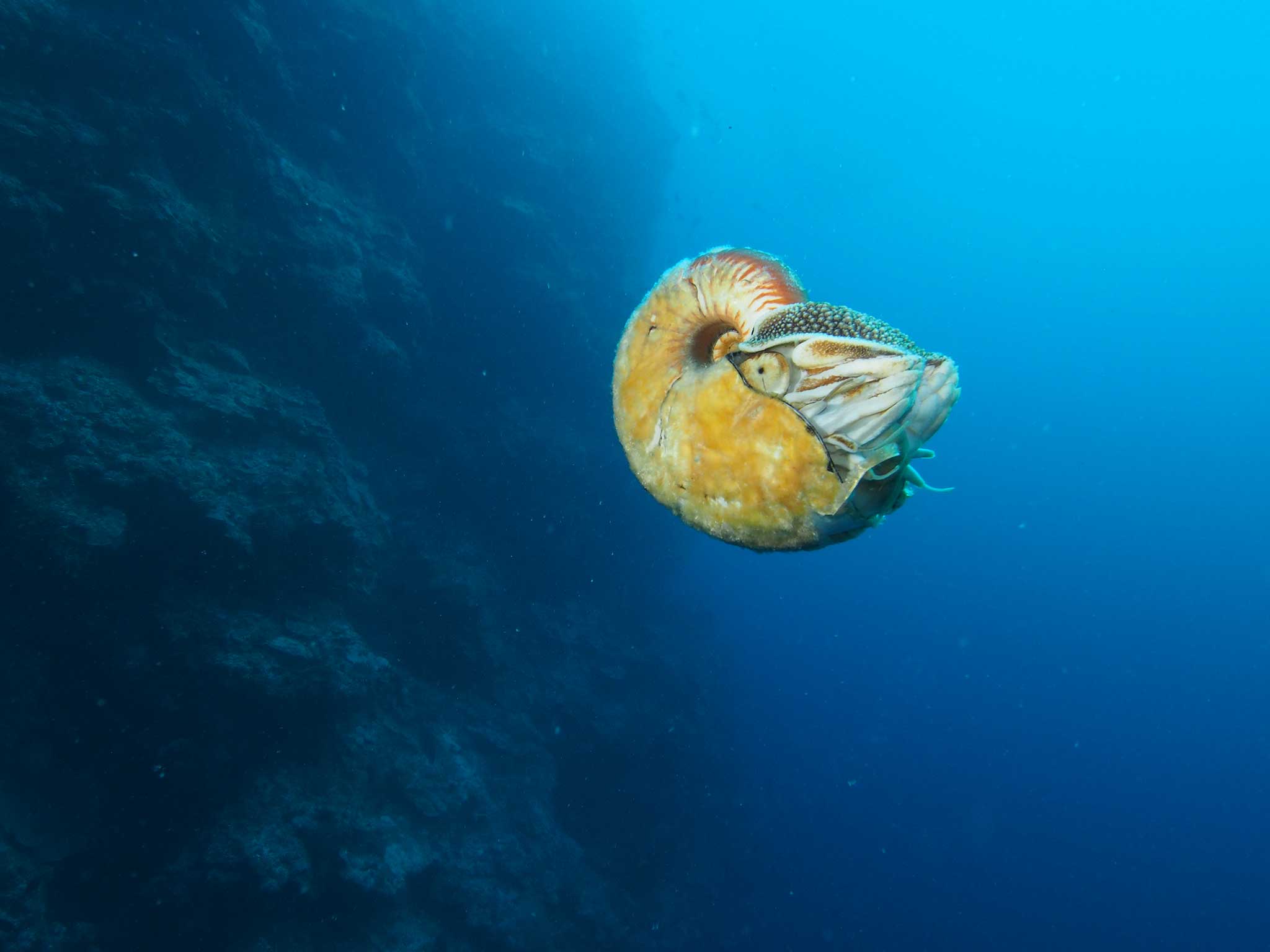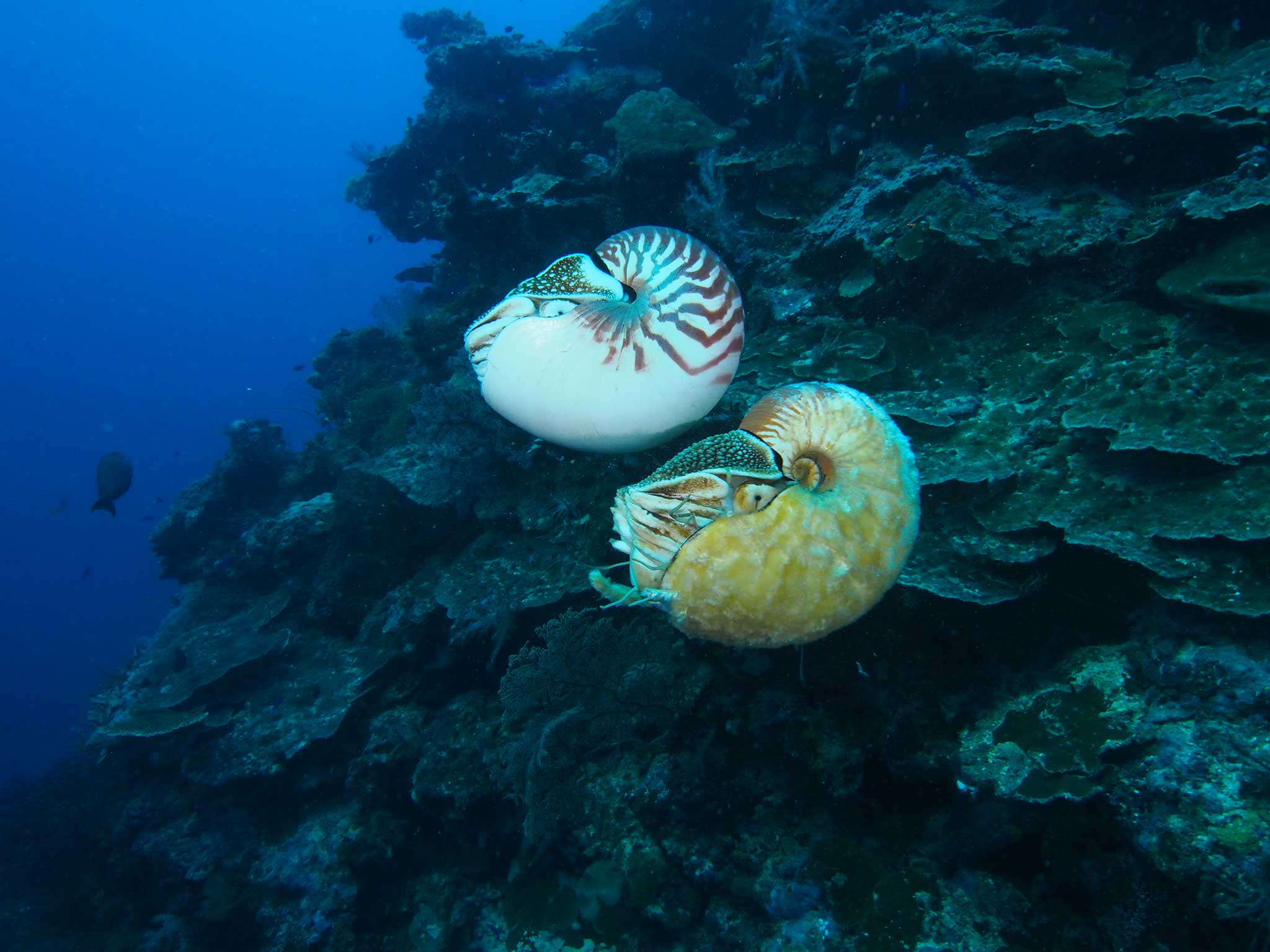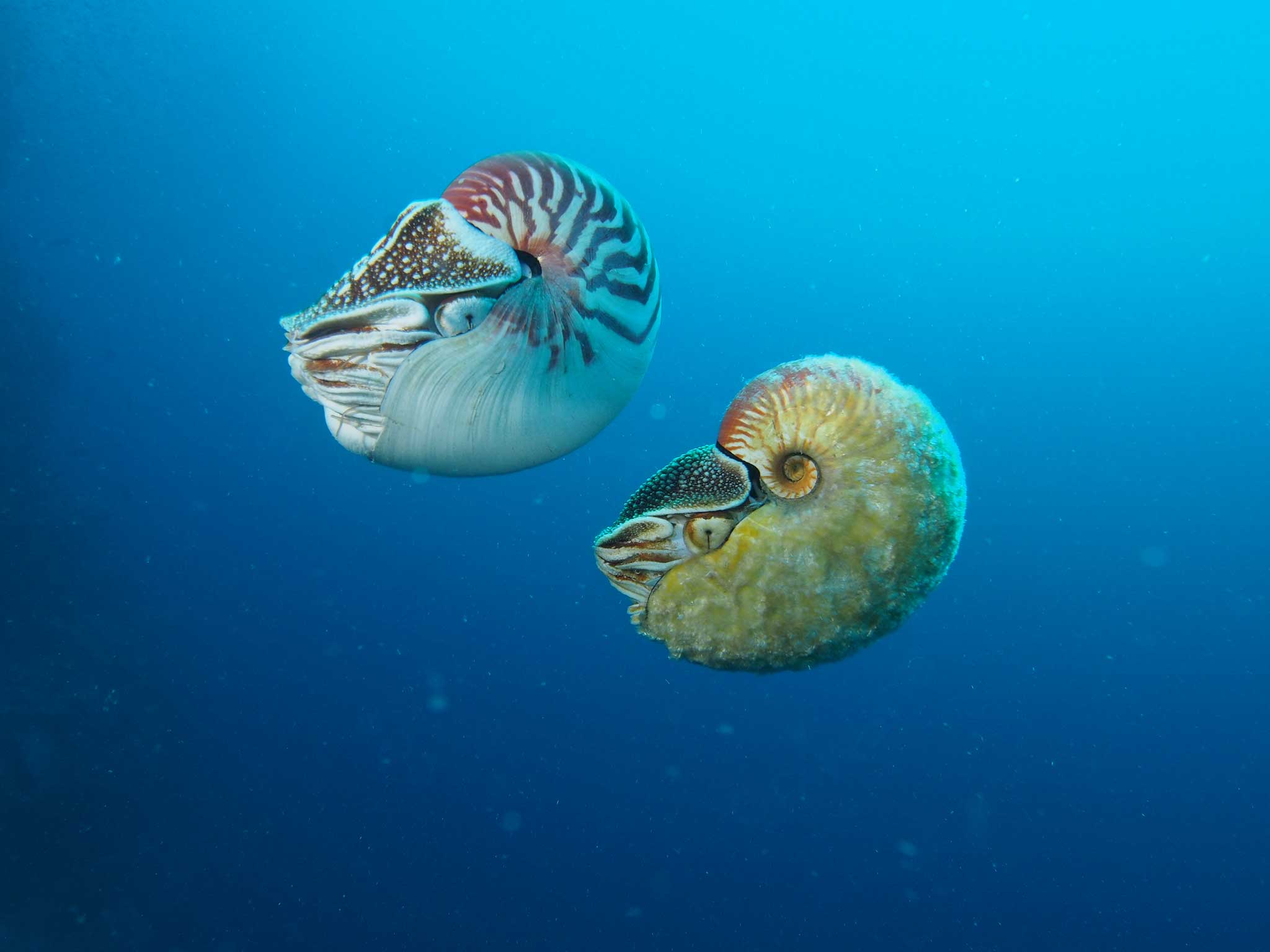Allonautilus scrobiculatus: World's 'rarest' creature spotted for only the third time ever
Only two people have ever seen the sea creature

Your support helps us to tell the story
From reproductive rights to climate change to Big Tech, The Independent is on the ground when the story is developing. Whether it's investigating the financials of Elon Musk's pro-Trump PAC or producing our latest documentary, 'The A Word', which shines a light on the American women fighting for reproductive rights, we know how important it is to parse out the facts from the messaging.
At such a critical moment in US history, we need reporters on the ground. Your donation allows us to keep sending journalists to speak to both sides of the story.
The Independent is trusted by Americans across the entire political spectrum. And unlike many other quality news outlets, we choose not to lock Americans out of our reporting and analysis with paywalls. We believe quality journalism should be available to everyone, paid for by those who can afford it.
Your support makes all the difference.One of the “rarest creatures in the world” has been spotted for only the third time ever off the coast of Papua New Guinea by a US biologist.
The creatures, which are thought to have survived two ice ages and pre-date dinosaurs, have only been seen by two people in the world – making them one of the planet’s most elusive and unknown inhabitants.
Peter Ward, a professor of biology at the University of Washington in the US, first saw Allonautilus scrobiculatus in 1984.
A species of nautilus, distant cousins of squid and cuttlefish, they have been christened the “living fossils” of the oceans’ waters due to the distinctive shells that appear as fossils over a 500-million-year period.


Mr Ward returned with a team to Papua New Guinea in July of this year to study Nautilus, using “bait on a stick” systems to tempt the creatures into view – between 500 and 1,300 metres below the water’s surface.
The creatures need a delicate balance to survive: unable to cope in water too hot, they will also perish should they exceed 2,500m in depth. Biologists believe as a result populations near one island or coral reef will differ dramatically.
But the animals are threatened by extinction thanks to illegal fishing and mining operations.
“As it stands now, nautilus mining could cause nautiluses to go extinct,” Mr Ward told the University of Washington news.
The biologist is keen to continue searching for the creature: “This could be the rarest animal in the world. We need to know if Allonautilus is anywhere else, and we won’t know until we go out there and look.”
Join our commenting forum
Join thought-provoking conversations, follow other Independent readers and see their replies
Comments